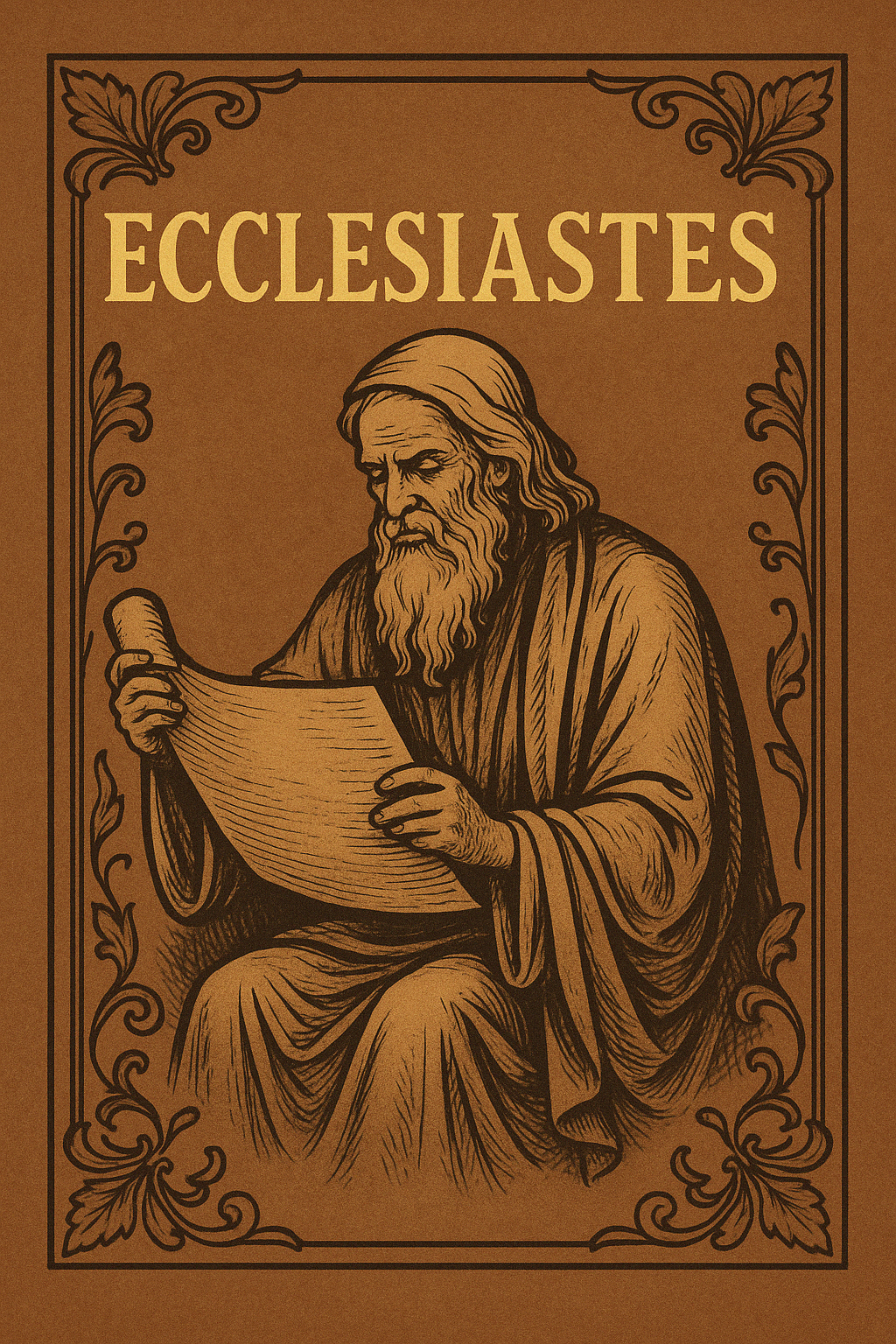What is this? On this page you will find "Who, What, Where, Why, When, How" questions to to help you either personally study these chapters or aid you in leading a discussion. Note that the 5W/H questions focus on observation of the text. The better you are able to carefully observe the text, the more accurate will be your Interpretation.
These questions can be used in studying or leading the Precept Upon Precept study on Ecclesiastes.
The questions are generally very simple and are stated in such a way as to stimulate you to observe the text to discern the answer. As a reminder, given the truth that our ultimate Teacher is the Holy Spirit, begin your time with God with a prayer such as Psalm 119:12+ "Blessed are You, O LORD; Teach me Your statutes." (you can vary it with similar prayers - Ps 119:18, 26, 33, 64, 66, 68, 108, 124, 135, 171+, etc) A few questions have no answers and are left to your observations and the illuminating/teaching ministry of the Holy Spirit. Some qualifying thoughts - (1) use "As is" (2) Some questions may not be the best question for a given verse and my guess is that on some verses you will think of a far superior 5W/H questions and/or many other questions.
Dr Howard Hendricks once gave an assignment to his seminary students to list as many observations as they could from Acts 1:8+. He said "So far they’ve come up with more than 600 different ones! Imagine what fun you could have with 600 observations on this passage. Would you like to see Scripture with eyes like that?" (P. 63 Living by the Book - borrow) With practice you can begin to read Scripture like that! And needless to say, you will likely come up with many more observations and questions than I have recorded below. Indeed, I pray that the Holy Spirit would lead you to discover a veritable treasure chest of observations and questions! In Jesus' Name. Amen
Why am I doing this? Mortimer Adler among others helped me develop a questioning mindset as I read, seeking to read actively rather than passively. Over the years I have discovered that as I have practiced reading with a 5W/H questioning mindset, it has yielded more accurate interpretation and the good fruit of meditation. In other words, consciously interacting with the inspired Holy Word of God and the illuminating Holy Spirit has honed my ability to meditate on the Scriptures, and my prayer is that this tool will have the same impact in your spiritual life. The benefits of meditation are literally priceless in regard to their value in this life and in the life to come (cf discipline yourself for godliness in 1Ti 4:8-10+.) For some of the benefits of meditation see Joshua 1:8+ and Psalm 1:2-3+. It will take diligence and mental effort to develop an "inductive" (especially an "observational"), interrogative mindset as you read God's Word, but it bears repeating that the benefits in this life and the rewards in the next will make it more than worth the effort you invest! Dear Christian reader let me encourage you to strongly consider learning the basic skills of inductive Bible study and spending the rest of your life practicing them on the Scriptures as you live them out in your daily walk with Christ.
Although Mortimer Adler's advice is from a secular perspective, his words are worth pondering...
Strictly, all reading is active. What we call passive is simply less active. Reading is better or worse according as it is more or less active. And one reader is better than another in proportion as he is capable of a greater range of activity in reading. (Adler's classic book How to Read a Book is free online)
John Piper (See Brothers, Let Us Query the Text) adds that "Insight or understanding is the product of intensive, headache-producing meditation on two or three verses and how they fit together. This kind of reflection and rumination is provoked by asking questions of the text. And you cannot do it if you hurry. Therefore, we must resist the deceptive urge to carve notches in our bibliographic gun. Take two hours to ask ten questions of Galatians 2:20+ and you will gain one hundred times the insight you would have attained by reading thirty pages of the New Testament or any other book. Slow down. Query. Ponder. Chew.... (John Dewey rightly said) "People only truly think when they are confronted with a problem. Without some kind of dilemma to stimulate thought, behavior becomes habitual rather than thoughtful.” (See Sermon preached by Piper just by asking/answering questions).
“Asking questions is the key to understanding.”
--Jonathan Edwards
That said, below are the 5W/H questions for Ecclesiastes. And I apologize that chapters 5-8 are not available as I did have time to create observation questions for those chapters.
 Ecclesiastes 1:1-9 (see commentary)
Ecclesiastes 1:1-9 (see commentary)
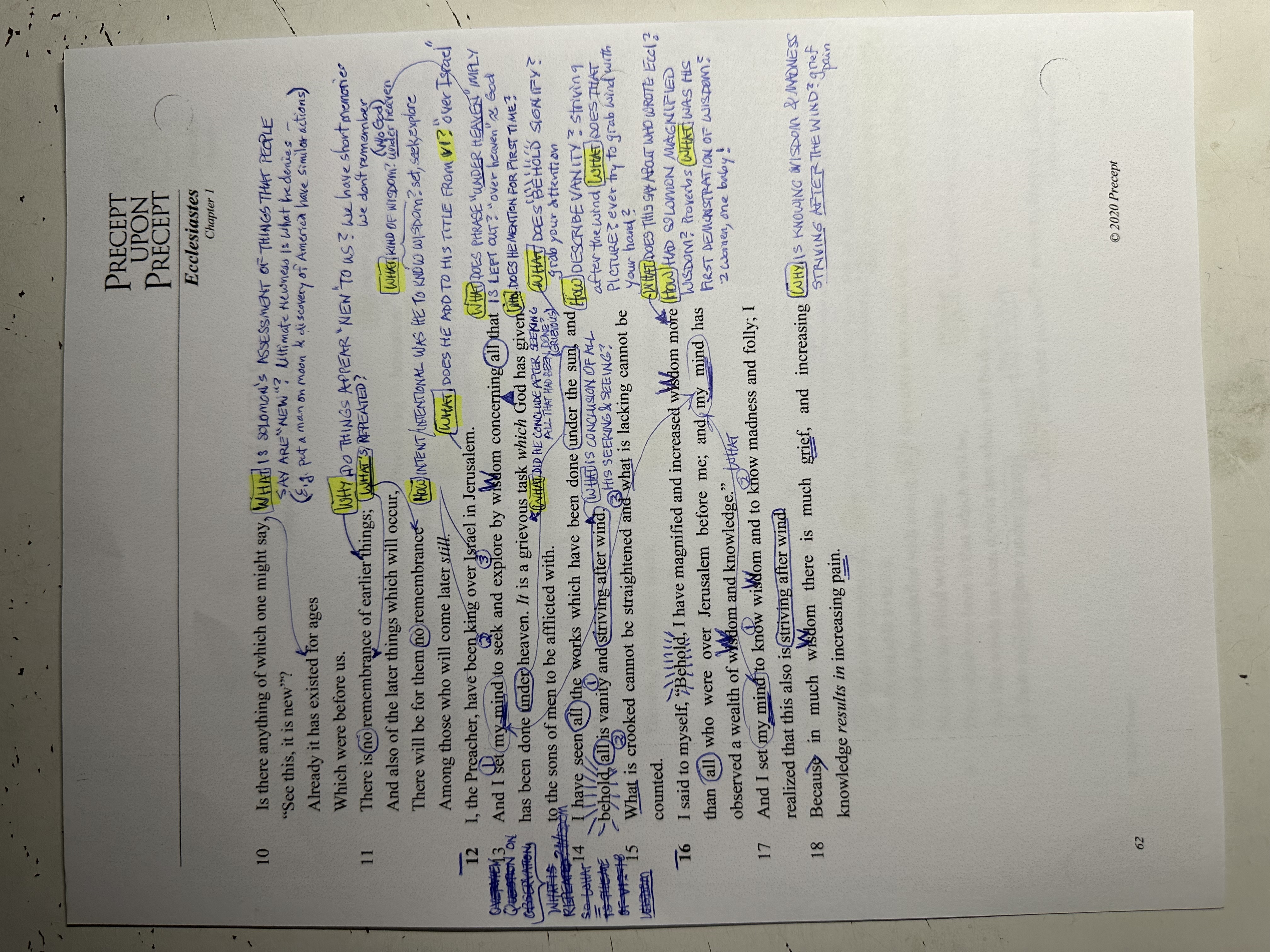 Ecclesiastes 1:10-18 (see commentary)
Ecclesiastes 1:10-18 (see commentary)
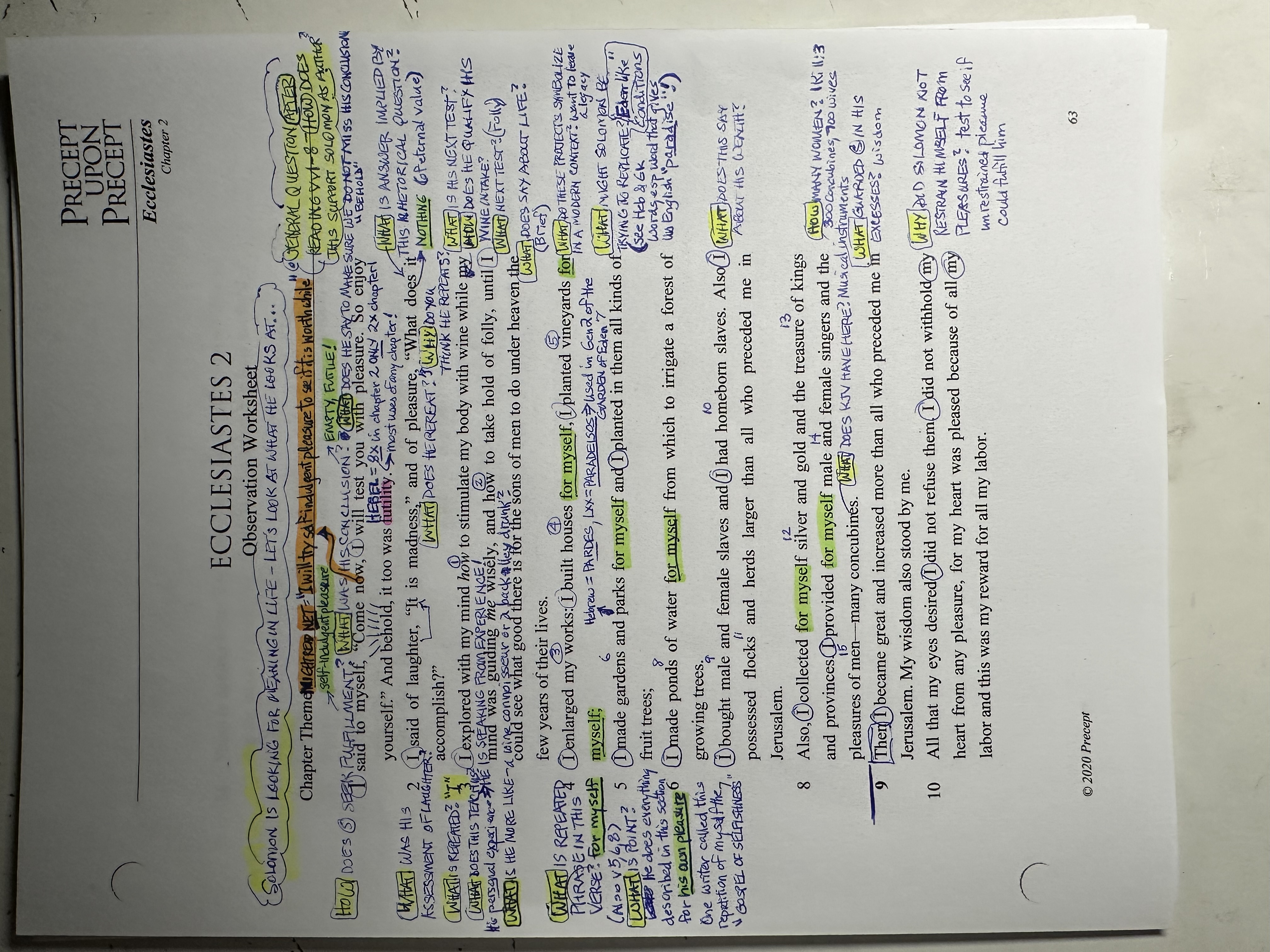 Ecclesiastes 2:1-10 (see commentary)
Ecclesiastes 2:1-10 (see commentary)
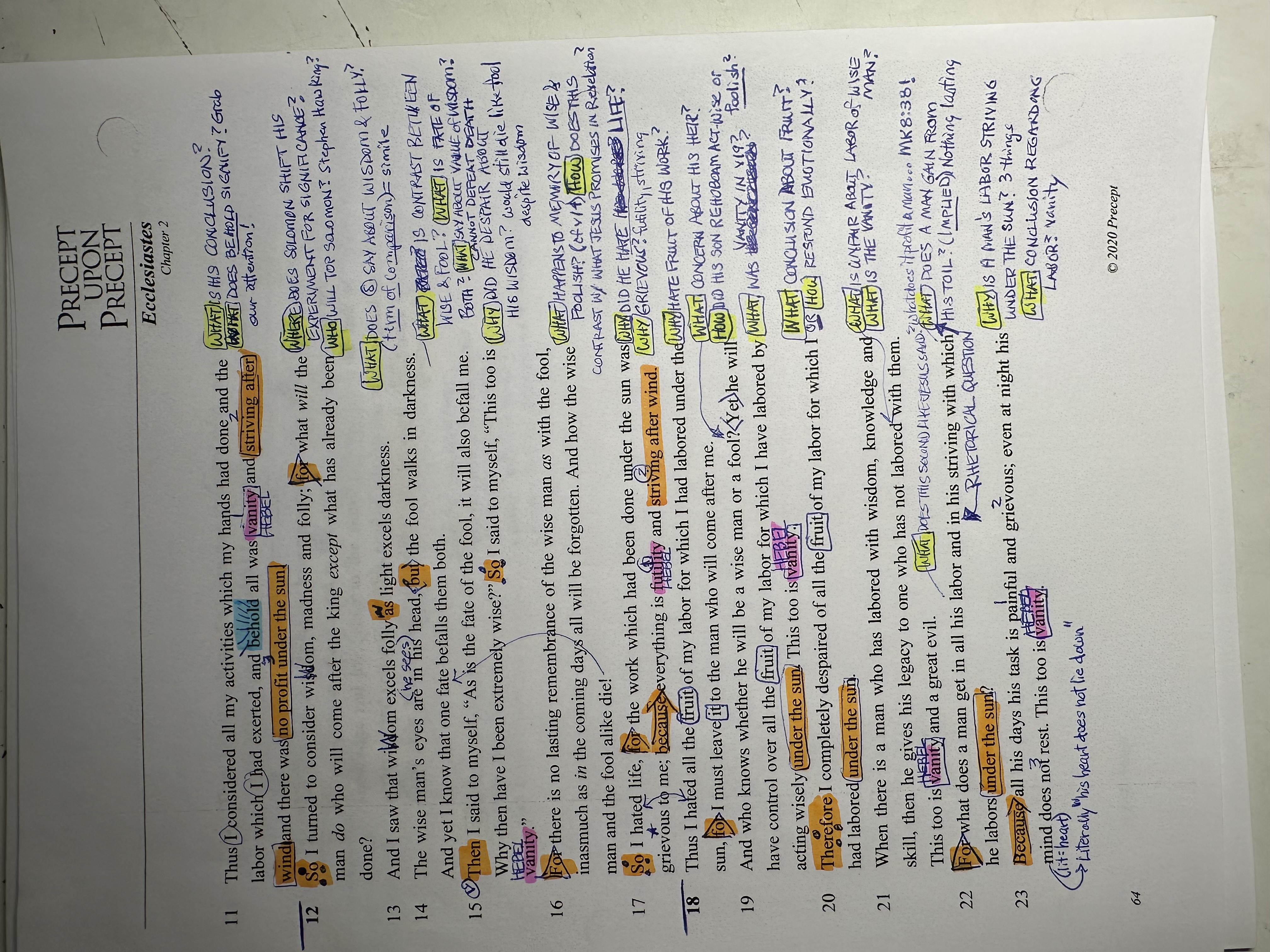 Ecclesiastes 2:11-23 (see commentary)
Ecclesiastes 2:11-23 (see commentary)
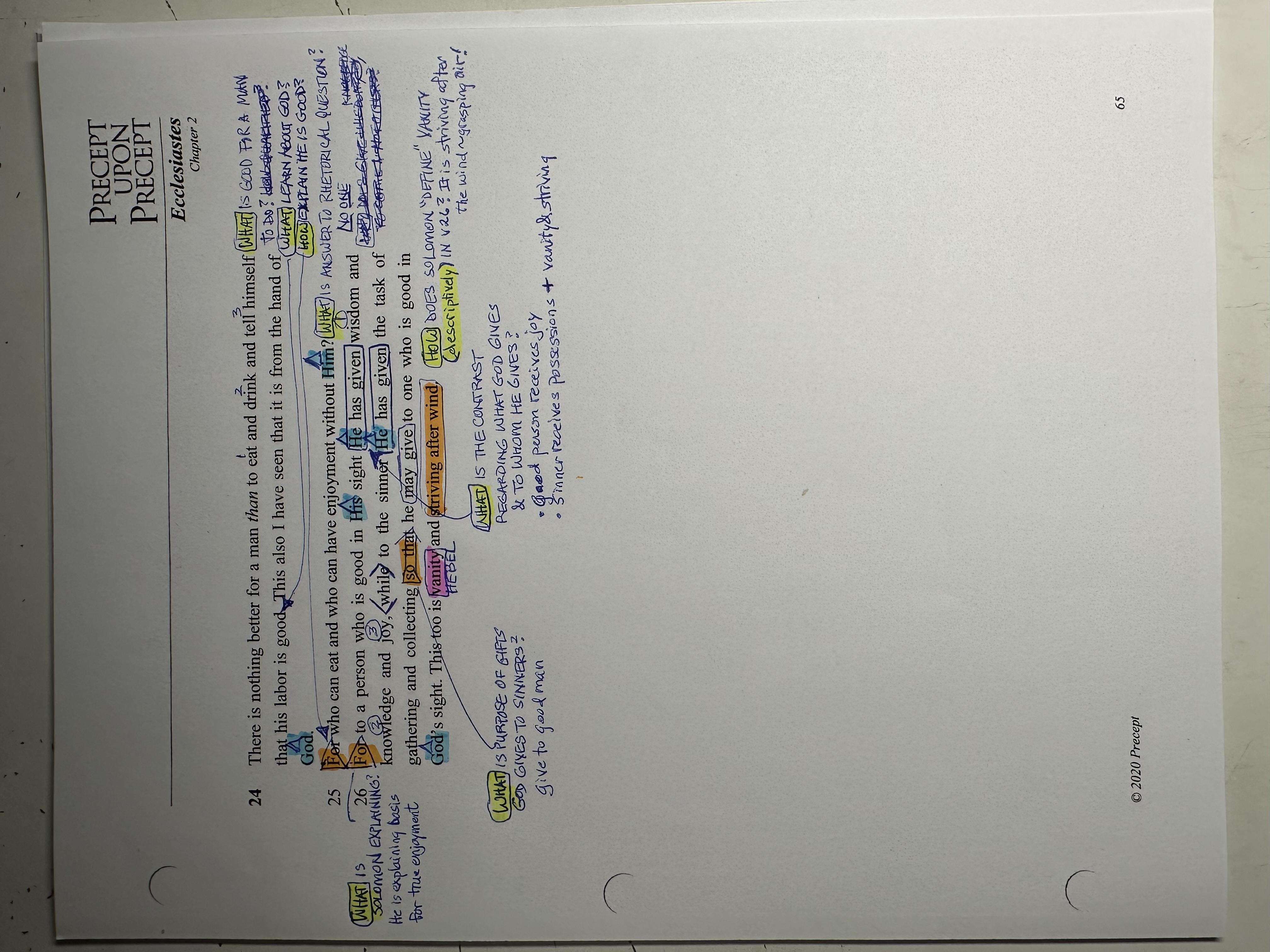 Ecclesiastes 2:24-26 (see commentary)
Ecclesiastes 2:24-26 (see commentary)
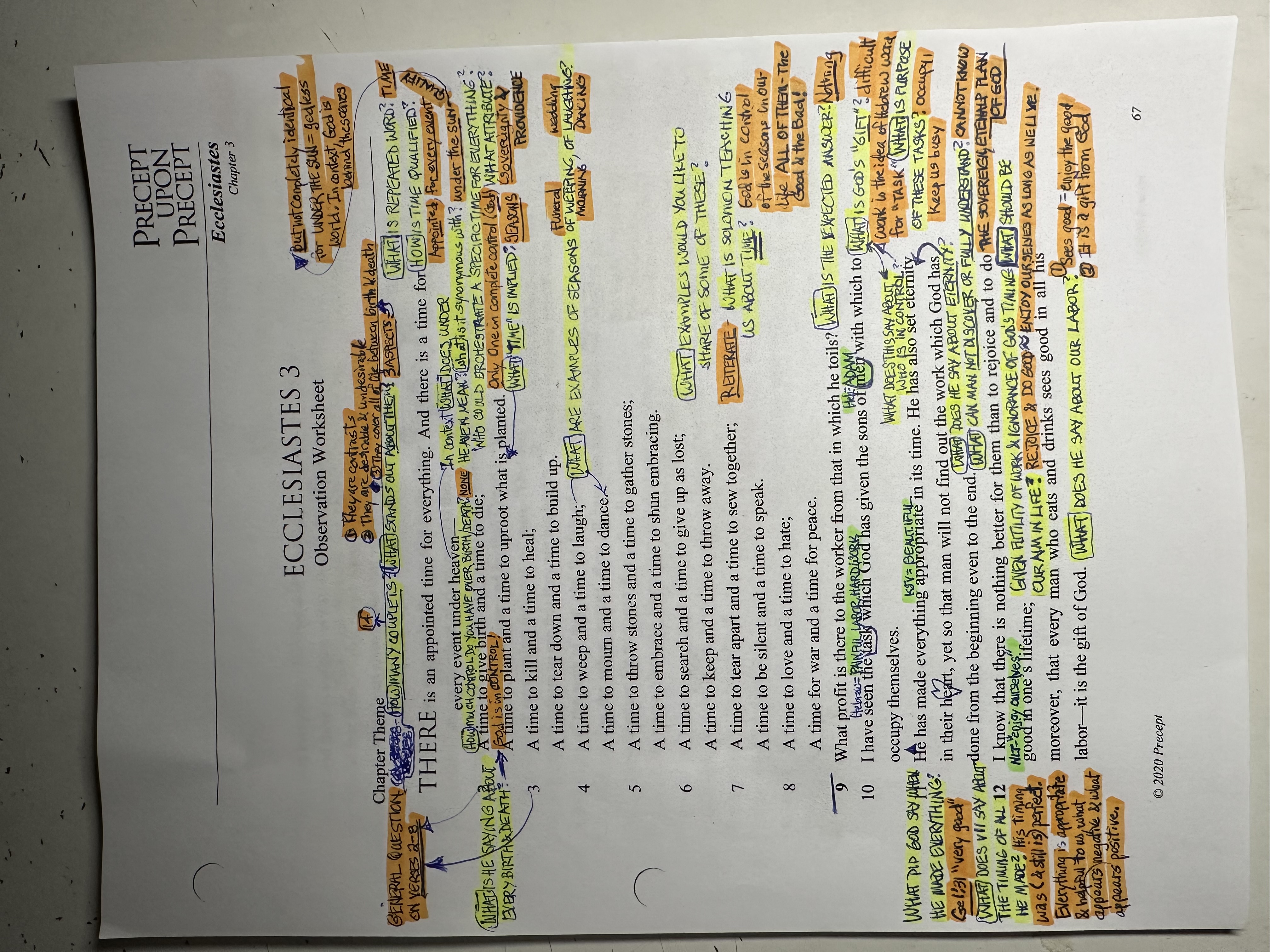 Ecclesiastes 3:1-13 (see commentary)
Ecclesiastes 3:1-13 (see commentary)
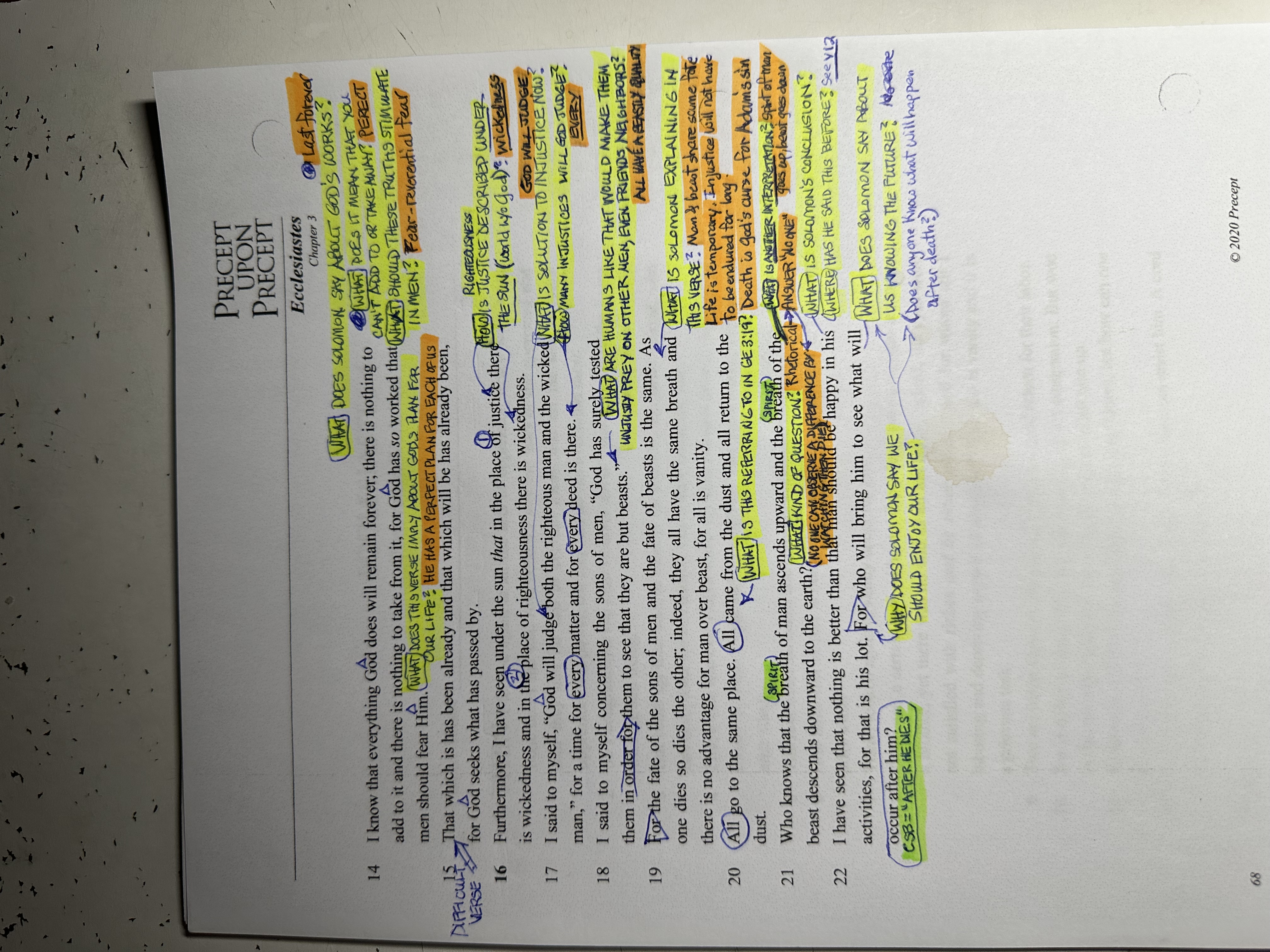 Ecclesiastes 3:14-22 (see commentary)
Ecclesiastes 3:14-22 (see commentary)
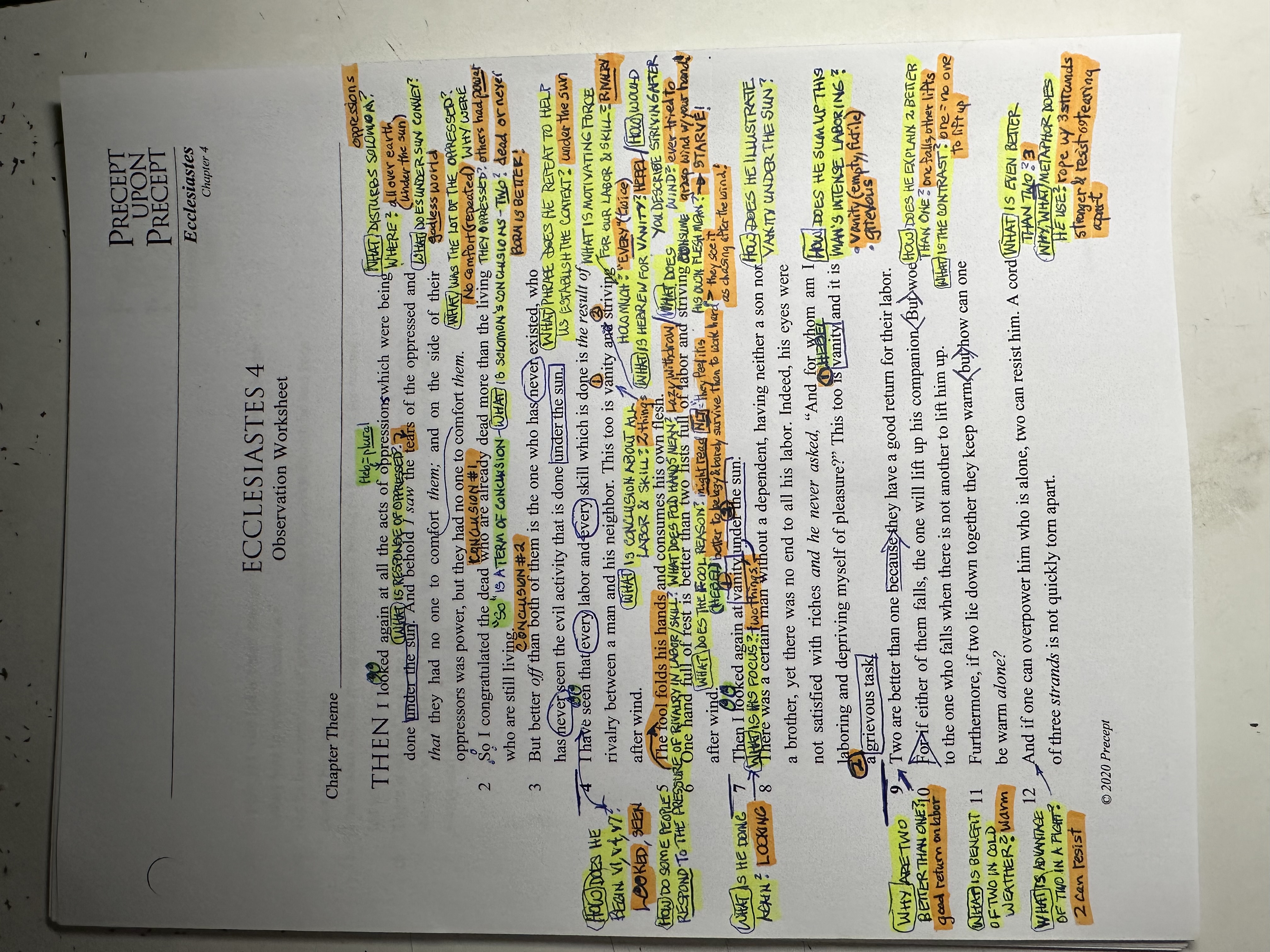 Ecclesiastes 4:1-12 (see commentary)
Ecclesiastes 4:1-12 (see commentary)
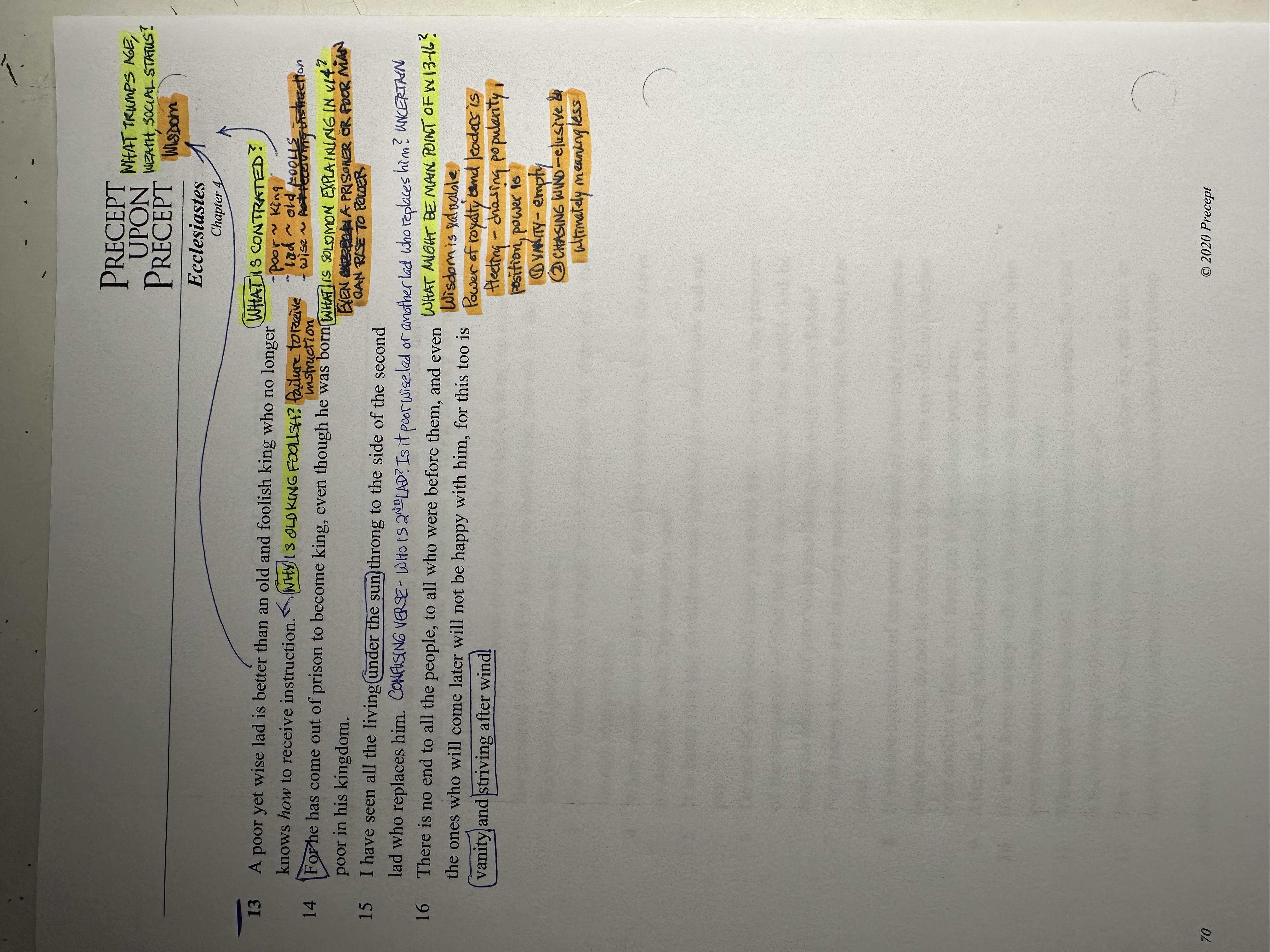 Ecclesiastes 4:13-16 (see commentary)
Ecclesiastes 4:13-16 (see commentary)
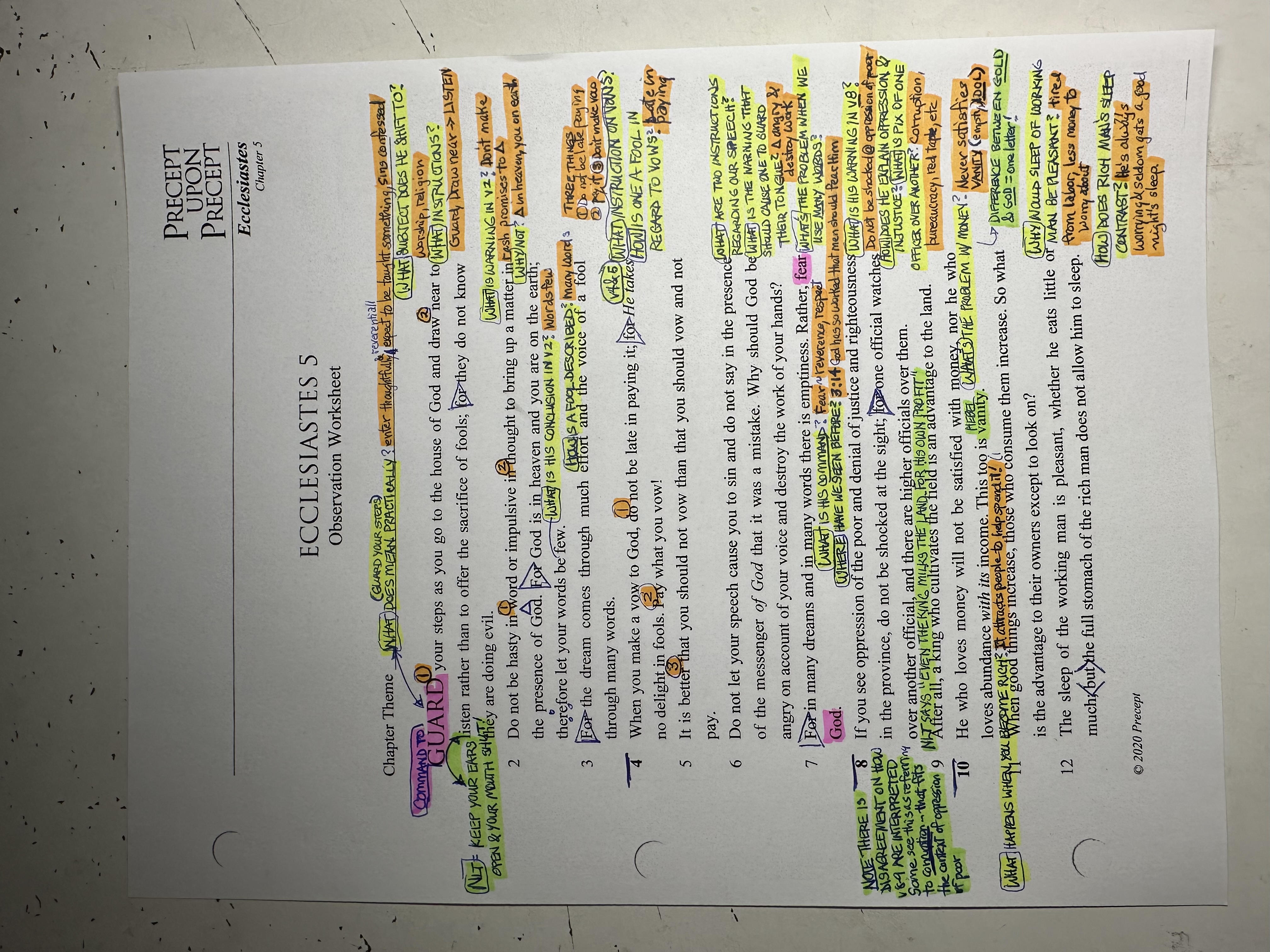 Ecclesiastes 5:1-12 (see commentary)
Ecclesiastes 5:1-12 (see commentary)
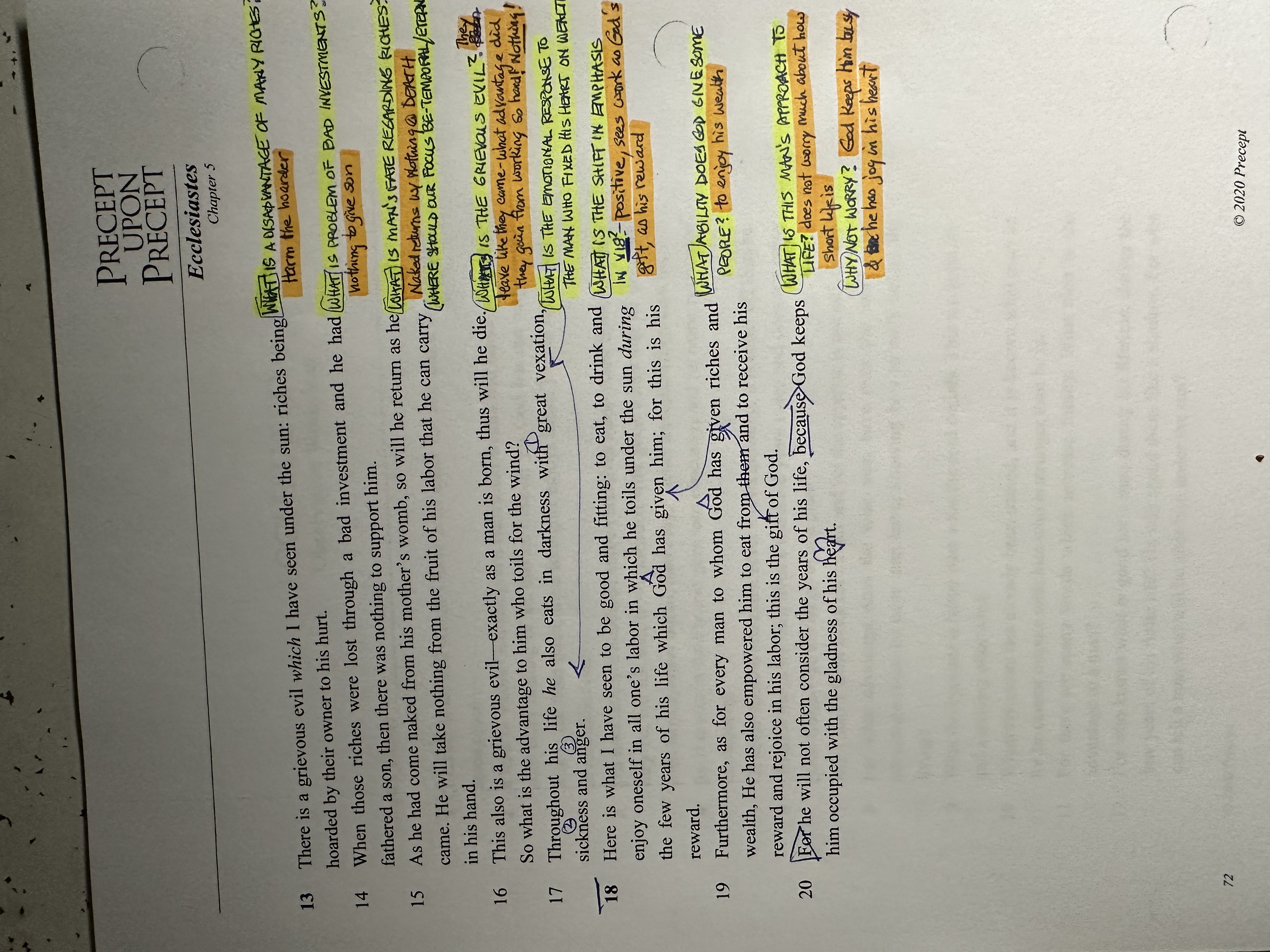 Ecclesiastes 5:13-20 (see commentary)
Ecclesiastes 5:13-20 (see commentary)
Ecclesiastes 6:1-12 Ecclesiastes 6 commentary
Ecclesiastes 7:1-29 Ecclesiastes 7 commentary
Ecclesiastes 8:1-17 Ecclesiastes 8 commentary
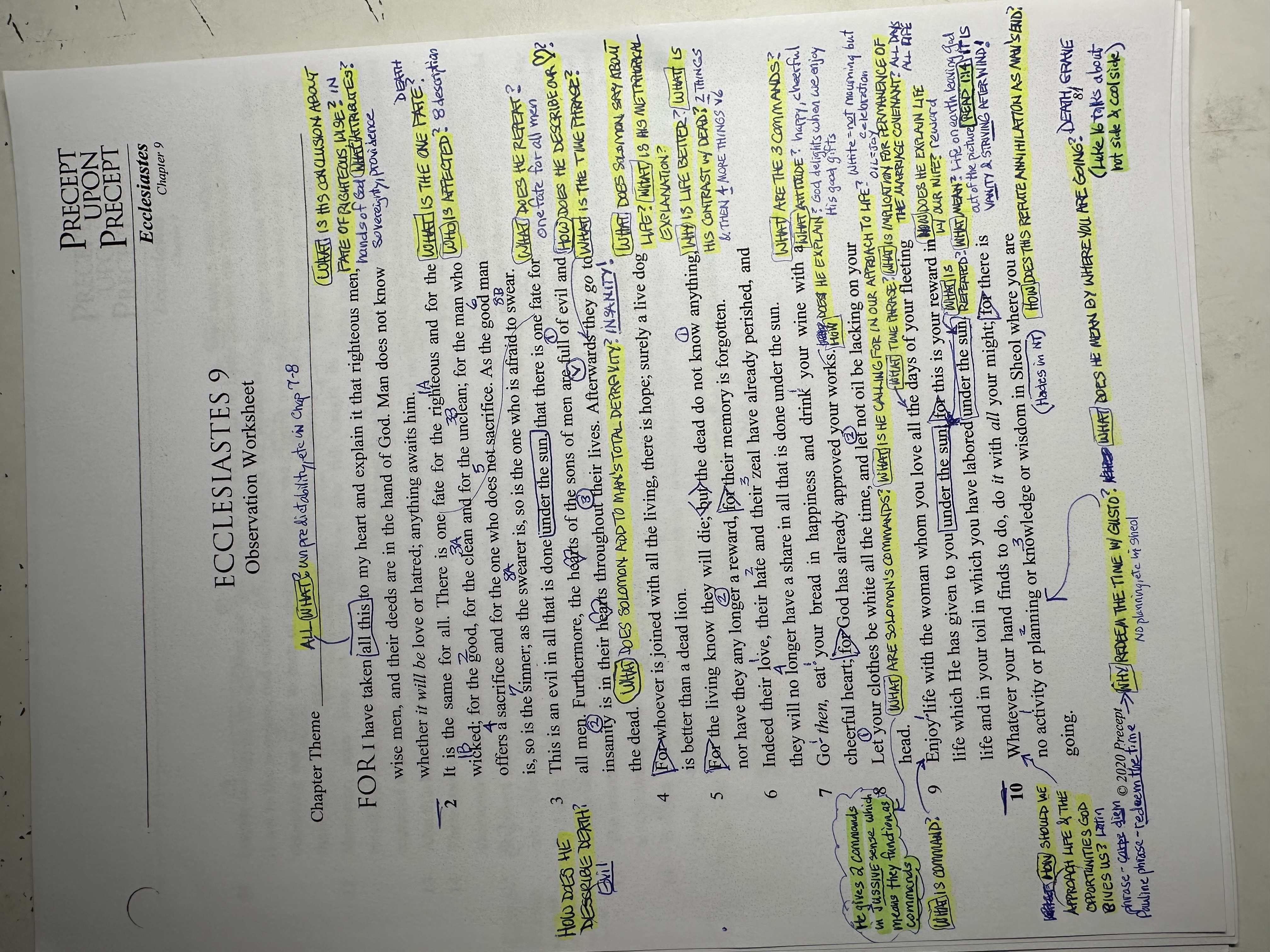 Ecclesiastes 9:1-10 (see commentary)
Ecclesiastes 9:1-10 (see commentary)
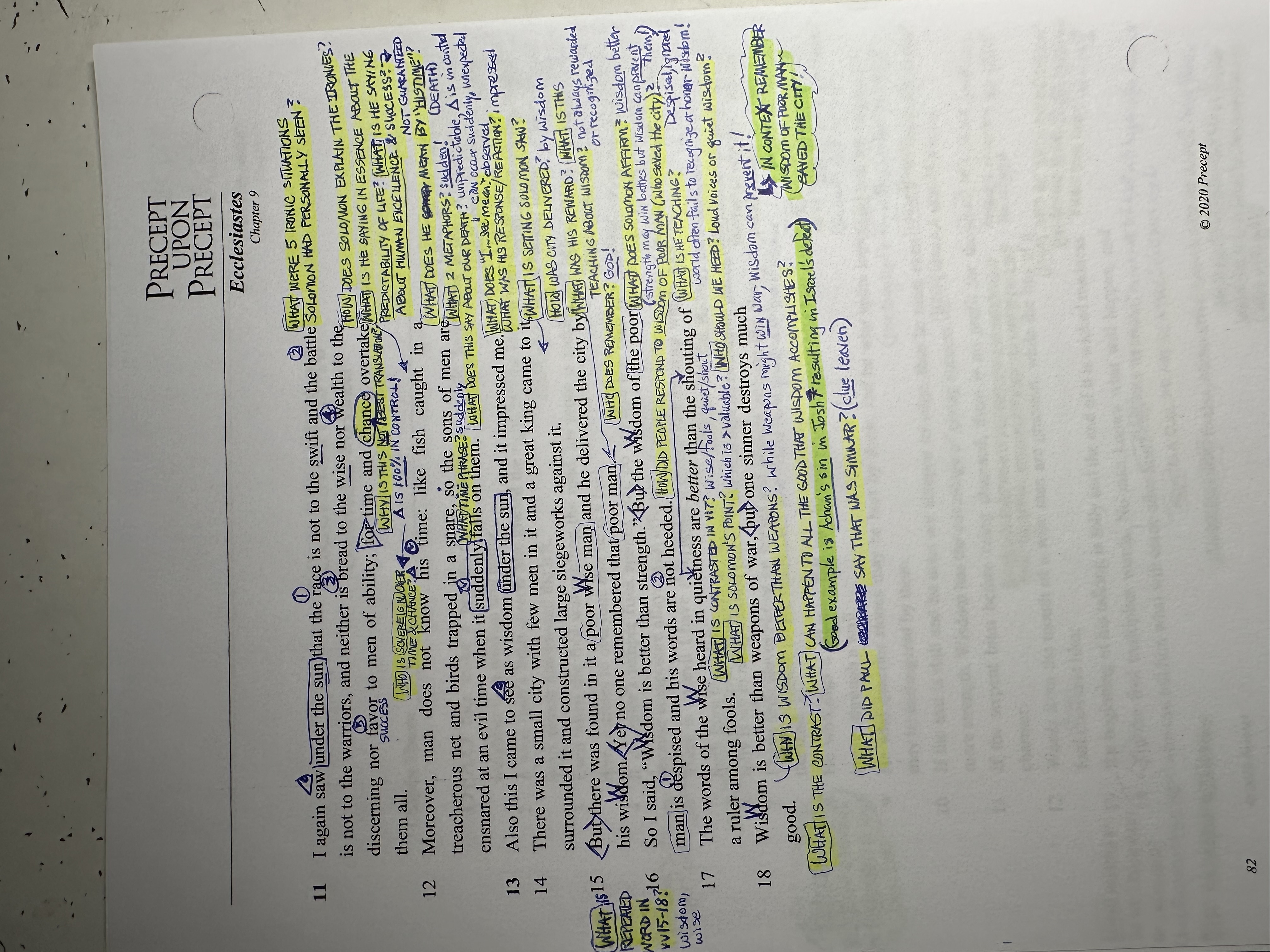 Ecclesiastes 9:11-18 (see commentary)
Ecclesiastes 9:11-18 (see commentary)
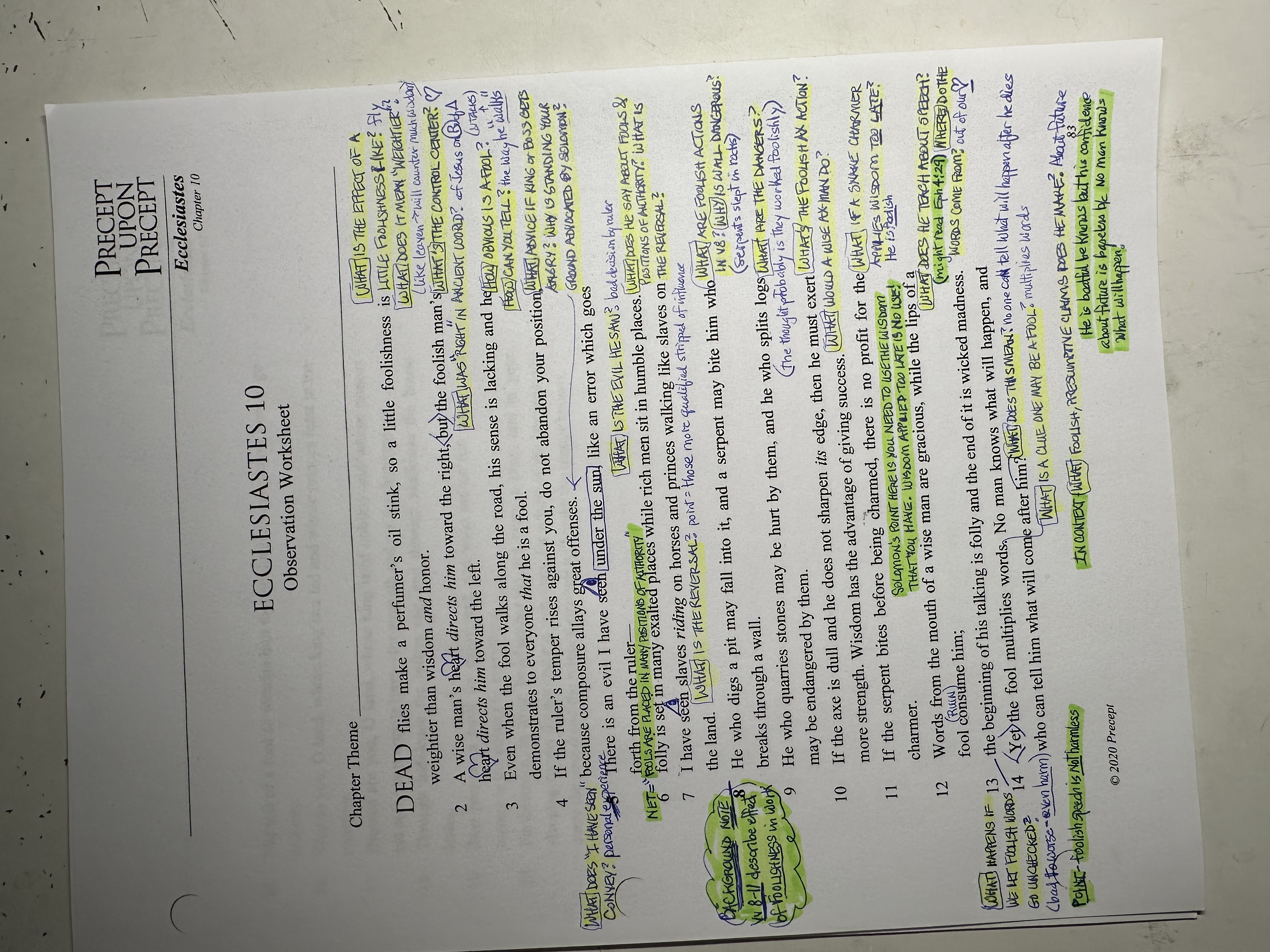 Ecclesiastes 10:1-14 (see commentary)
Ecclesiastes 10:1-14 (see commentary)
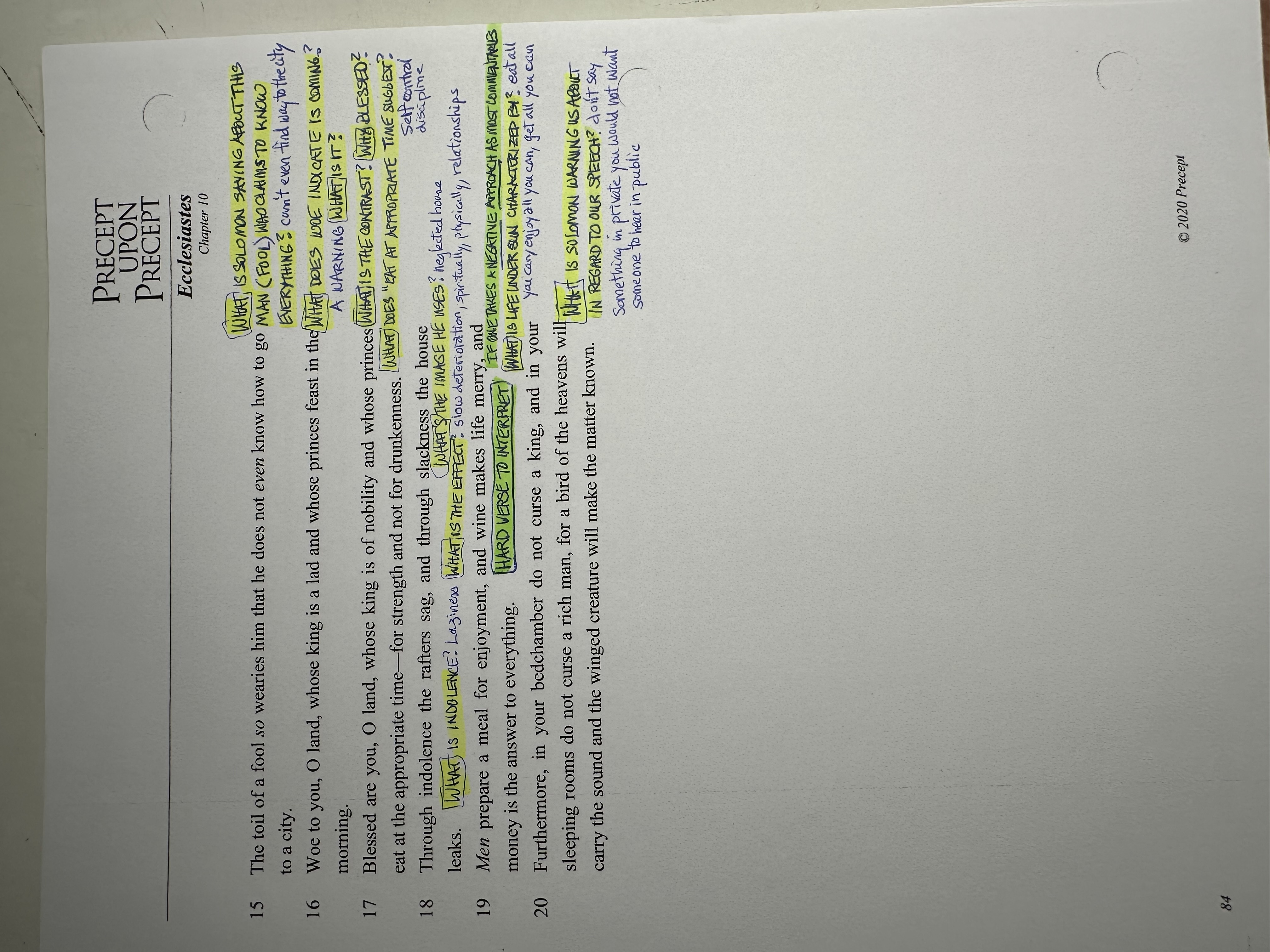 Ecclesiastes 10:15-20 (see commentary)
Ecclesiastes 10:15-20 (see commentary)
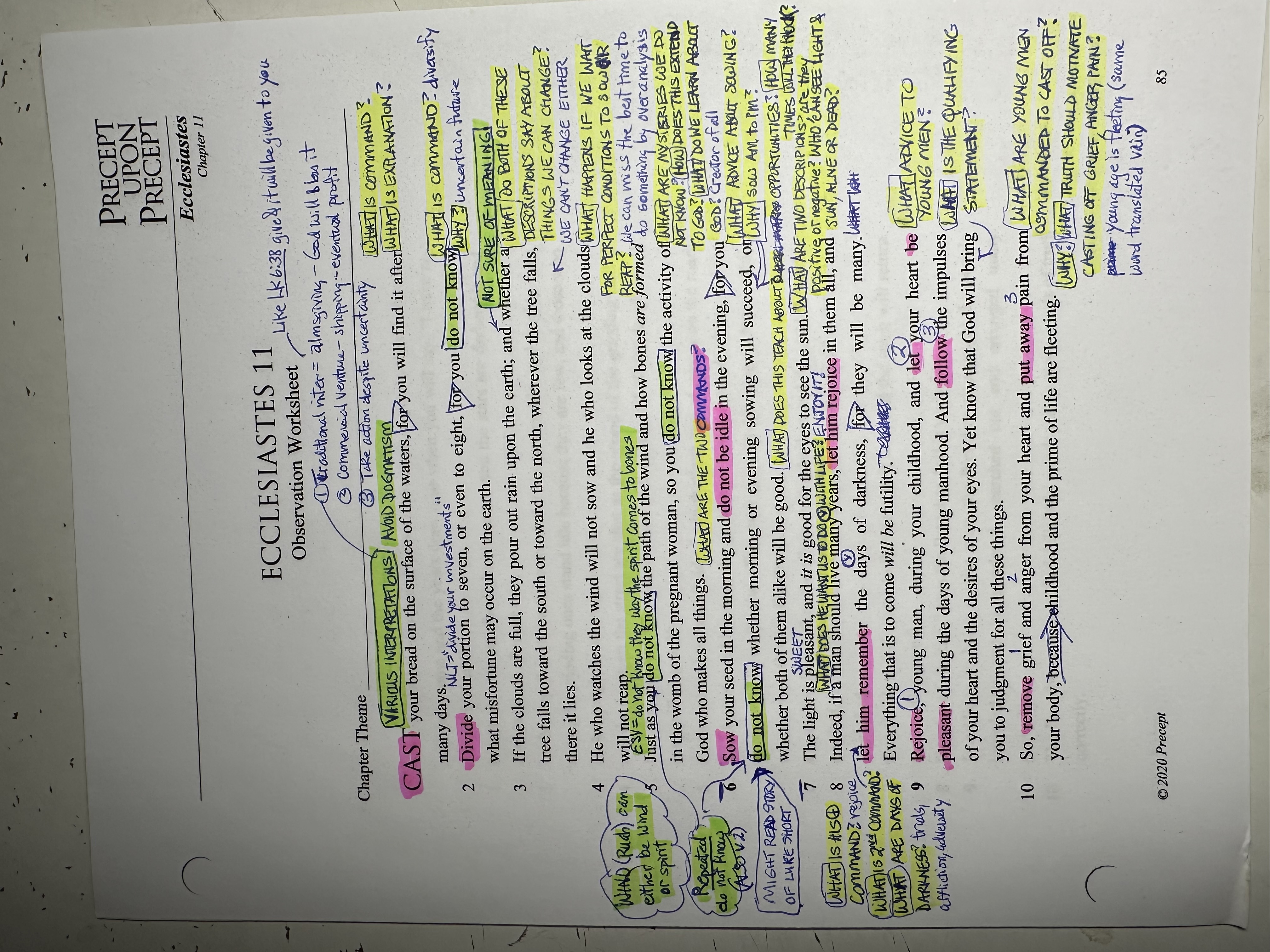 Ecclesiastes 11:1-10 (see commentary)
Ecclesiastes 11:1-10 (see commentary)
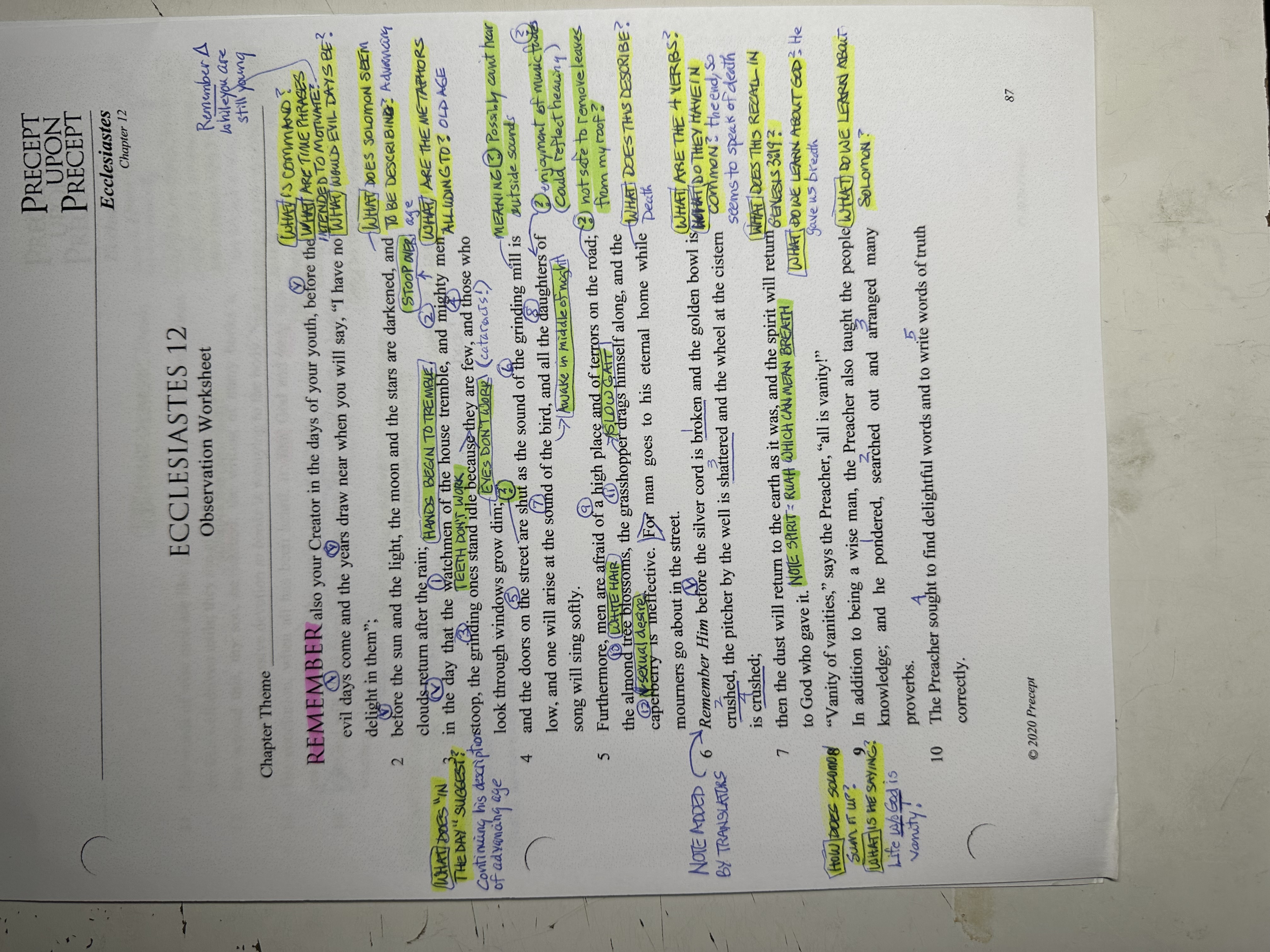 Ecclesiastes 12:1-10 (see commentary)
Ecclesiastes 12:1-10 (see commentary)
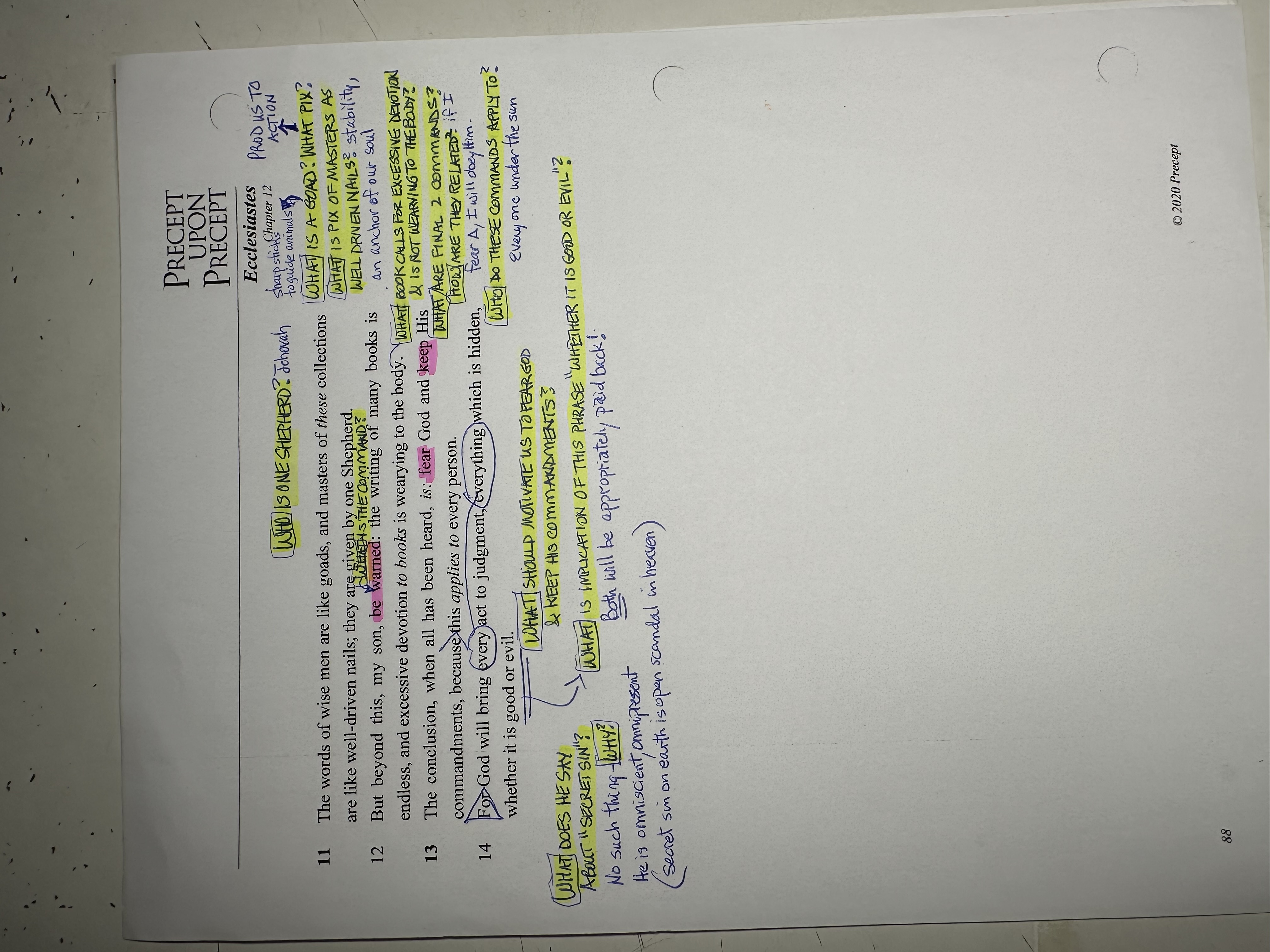 Ecclesiastes 12:11-14 (see commentary)
Ecclesiastes 12:11-14 (see commentary)
